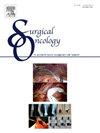Survival outcomes and pathologic complete response following neoadjuvant chemoradiotherapy versus chemotherapy alone in locally advanced rectal cancer
IF 2.4
4区 医学
Q3 ONCOLOGY
引用次数: 0
Abstract
Background
The management of locally advanced rectal cancer (LARC) continues to evolve, marked by significant advancements in treatment paradigms. Total neoadjuvant therapy (TNT) has emerged as a promising strategy, while de-escalation approaches, such as neoadjuvant chemotherapy (nCT) alone, are gaining traction to mitigate radiation-related toxicities without compromising oncologic efficacy. This study aimed to compare survival outcomes and pathologic complete response (pCR) rates between patients with LARC treated with neoadjuvant chemoradiotherapy (nCRT) and those treated with nCT alone.
Methods
This retrospective cohort study analyzed data from the National Cancer Database (NCDB) between 2015 and 2019. The inclusion criteria were non-metastatic clinical T2 node-positive, T3 node-negative, and T3 node-positive rectal adenocarcinoma patients undergoing partial proctectomy with neoadjuvant therapy. The stabilized inverse probability of treatment weighting (IPTW) was applied to balance the baseline characteristics. Overall survival was assessed using Kaplan-Meier curves and multivariable Cox proportional hazards models, while pCR rates were analyzed using logistic regression.
Results
Of 6886 patients included, 386 (5.6 %) received nCT alone, and 6500 (94.4 %) received nCRT. After IPTW adjustment, no significant difference in overall survival was observed between nCRT and nCT alone groups (HR: 0.99, 95 % CI: 0.69–1.41, p = 0.936). pCR rates were similar (OR: 1.20, 95 % CI: 0.77–1.98, p = 0.438). Subgroup analysis revealed non-significant trends toward higher pCR rates with nCRT in T3 node-positive patients (OR: 1.44, 95 % CI: 0.77–3.05, p = 0.297). Residual tumor margins (HR: 3.04, 95 % CI: 2.34–3.94, p < 0.001) and incomplete pathological response (HR: 1.68, 95 % CI: 1.22–2.31, p = 0.002) were significant predictors of worse survival outcomes regardless of treatment modality.
Conclusion
This large-scale analysis demonstrates comparable overall survival and pCR rates between nCRT and nCT alone in carefully selected with LARC patients, supporting the growing evidence for selective radiation omission strategies. These findings align with those of contemporary de-escalation trials and suggest that nCT alone may be a viable treatment option for specific patient subgroups. Future prospective studies incorporating quality of life assessments and long-term functional outcomes are essential to optimize personalized treatment strategies and refine patient selection criteria for radiation de-escalation in LARC management.
局部晚期直肠癌新辅助放化疗与单独化疗后的生存结果和病理完全缓解
背景局部晚期直肠癌(LARC)的治疗不断发展,治疗模式显著进步。总的新辅助治疗(TNT)已成为一种有前景的策略,而降级方法,如单独的新辅助化疗(nCT),正在获得吸引力,以减轻辐射相关的毒性,而不影响肿瘤疗效。本研究旨在比较LARC患者接受新辅助放化疗(nCRT)和单独接受nCT治疗的患者的生存结局和病理完全缓解(pCR)率。方法本回顾性队列研究分析了2015年至2019年美国国家癌症数据库(NCDB)的数据。纳入标准是非转移性临床T2淋巴结阳性、T3淋巴结阴性和T3淋巴结阳性的直肠腺癌患者,他们接受了部分直肠切除术并进行了新辅助治疗。采用稳定的治疗加权逆概率(IPTW)来平衡基线特征。采用Kaplan-Meier曲线和多变量Cox比例风险模型评估总生存率,采用logistic回归分析pCR率。结果6886例患者中,单独接受nCT治疗的386例(5.6%),接受nCRT治疗的6500例(94.4%)。调整IPTW后,nCRT组与单独nCT组的总生存率无显著差异(HR: 0.99, 95% CI: 0.69-1.41, p = 0.936)。pCR率相似(OR: 1.20, 95% CI: 0.77 ~ 1.98, p = 0.438)。亚组分析显示,在T3淋巴结阳性患者中,nCRT的pCR率升高趋势不显著(OR: 1.44, 95% CI: 0.77-3.05, p = 0.297)。残余肿瘤边缘(HR: 3.04, 95% CI: 2.34-3.94, p <;0.001)和不完全病理反应(HR: 1.68, 95% CI: 1.22-2.31, p = 0.002)是预后较差的显著预测因子,与治疗方式无关。结论:这项大规模分析表明,在精心挑选的LARC患者中,nCRT和单独nCT的总生存率和pCR率相当,支持选择性放射遗漏策略的证据越来越多。这些发现与当代降压试验的结果一致,表明单独的nCT可能是特定患者亚组的可行治疗选择。纳入生活质量评估和长期功能结果的未来前瞻性研究对于优化个性化治疗策略和完善LARC管理中辐射降级的患者选择标准至关重要。
本文章由计算机程序翻译,如有差异,请以英文原文为准。
求助全文
约1分钟内获得全文
求助全文
来源期刊

Surgical Oncology-Oxford
医学-外科
CiteScore
4.50
自引率
0.00%
发文量
169
审稿时长
38 days
期刊介绍:
Surgical Oncology is a peer reviewed journal publishing review articles that contribute to the advancement of knowledge in surgical oncology and related fields of interest. Articles represent a spectrum of current technology in oncology research as well as those concerning clinical trials, surgical technique, methods of investigation and patient evaluation. Surgical Oncology publishes comprehensive Reviews that examine individual topics in considerable detail, in addition to editorials and commentaries which focus on selected papers. The journal also publishes special issues which explore topics of interest to surgical oncologists in great detail - outlining recent advancements and providing readers with the most up to date information.
 求助内容:
求助内容: 应助结果提醒方式:
应助结果提醒方式:


